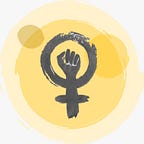Adapting Essential WPE Programming in times of COVID-19 in Tanzania
The below was written by Esther Karnley, Women’s Protection and Empowerment Coordinator in Tanzania at the International Rescue Committee (IRC). She describes how the WPE team has been modifying activities to ensure clients can still access support services during the pandemic. The IRC is grateful for the support of UK Aid, the United States Government, UNHCR and UNFPA for this work. The ideas, opinions and comments in this post are entirely the responsibility of the IRC and do not necessarily reflect the views or policies of UK Aid, the US Government, UNHCR and UNFPA.
As COVID-19 has hit Tanzania, government restrictions and organizational staff safety measures have meant that much of IRC’s WPE programming in the three refugee camps in Tanzania has been affected. However, due to the lifesaving and life-affirming nature of many of the WPE interventions, the team has continued to adapt them to ensure that we can sustain as many of the services as possible in a manner that is safe for both our staff and our clients.
“I am worried about clients in the camp who are facing gender-based violence but do not know that they can reach out to us for help because we are not allowed to do awareness raising activities anymore,” explains the GBV Psychosocial Officer for IRC Tanzania in Nduta Refugee Camp.
The first set of activities that have been impacted are our prevention activities that involve gatherings of large numbers of people, such as awareness raising campaigns, behavior change programs and empowerment programs. We have had to suspend most of these programs.
However, the suspension of some of these programs is already creating challenges for our other WPE responses, particularly case management. This is at a time when GBV incidents are expected to rise based on evidence from other epidemics and outbreaks. Closure of schools may already be having such an impact, although evidence on this is currently only anecdotal.
As the GBV Psychosocial Support Officer in Mtendeli Refugee Camp notes “We have received some cases that may be due to school closures. Young girls are now forced to stay at home or go collect firewood, which has made some of them more vulnerable.”
As a result, we have had to adapt some of our prevention work. Before further restrictions shut these activities down, we started doing awareness raising through public announcement systems by going around the camps in vehicles. Where possible, our refugee incentive staff also conducted individual household visits, where they would share COVID-19 prevention as well as GBV-focused messages with refugees while meeting them outside their homes and maintaining social distance.
We have adapted our Women and Girls Safe Spaces (WGSS) to ensure that they can stay open in a safe manner. We have installed handwashing stations outside all our facilities. Our programs in the safe spaces — such as tailoring or basket-making — have been adjusted so that we can maintain social distancing inside our centres. Where centres used to have up to 50 women at a time, they now just have 4–5 women who are spread out in the space. We still reach a high number of women, however, because we have increased the frequency of sessions, often having multiple shifts in the morning and afternoon.
Our most vital adaptations have been in case management, which we plan to continue despite the increasing risk of COVID-19. Like our safe spaces, our women’s centres also have handwashing stations outside now. We are maintaining social distancing in waiting rooms for survivors as well as at sessions where our case management staff are interacting with clients. For legal proceedings, our legal officers must accompany survivors and witnesses to district courts often. Our vehicles have been equipped with hand sanitizers for the journey. We are also supplying our legal officers and all other individuals going to court with them with masks for their protection. As we continue to source more PPE, we are planning to equip our case management staff with masks for their safety as well.
Finally, the team also prepared for a potential lockdown situation where our staff may no longer be able to access the camps to provide essential case management services. We are equipping our refugee incentive staff to provide basic psychosocial support services in the absence of our staff. To avoid big gatherings, we have been training refugee staff in small groups and frequent sessions. We have also created phone trees to facilitate communication between our national staff and refugee incentive staff in the case of a lockdown and also disseminated contact numbers to clients — including the contact information for IRC Tanzania’s toll free hotline — so that they can report incidents and seek help even if our staff cannot be physically in the camp.
We realize that COVID-19 poses several challenges and risks for many demographics, but we also know that health crisis like this one often disproportionately increase risks faced by women and girls, particularly with respect to gender-based violence. We are, therefore, committed to continuing and adapting our interventions in order to meet the needs of our clients in the camps.
The GBV Psychosocial Support Officer in Nyarugusu Refugee Camp concludes, “I know that there are risks that we face as staff and I am worried about my own health and safety. However, I am proud of the work that we are continuing to do because it is vital that we provide these services to survivors in the camps.”
